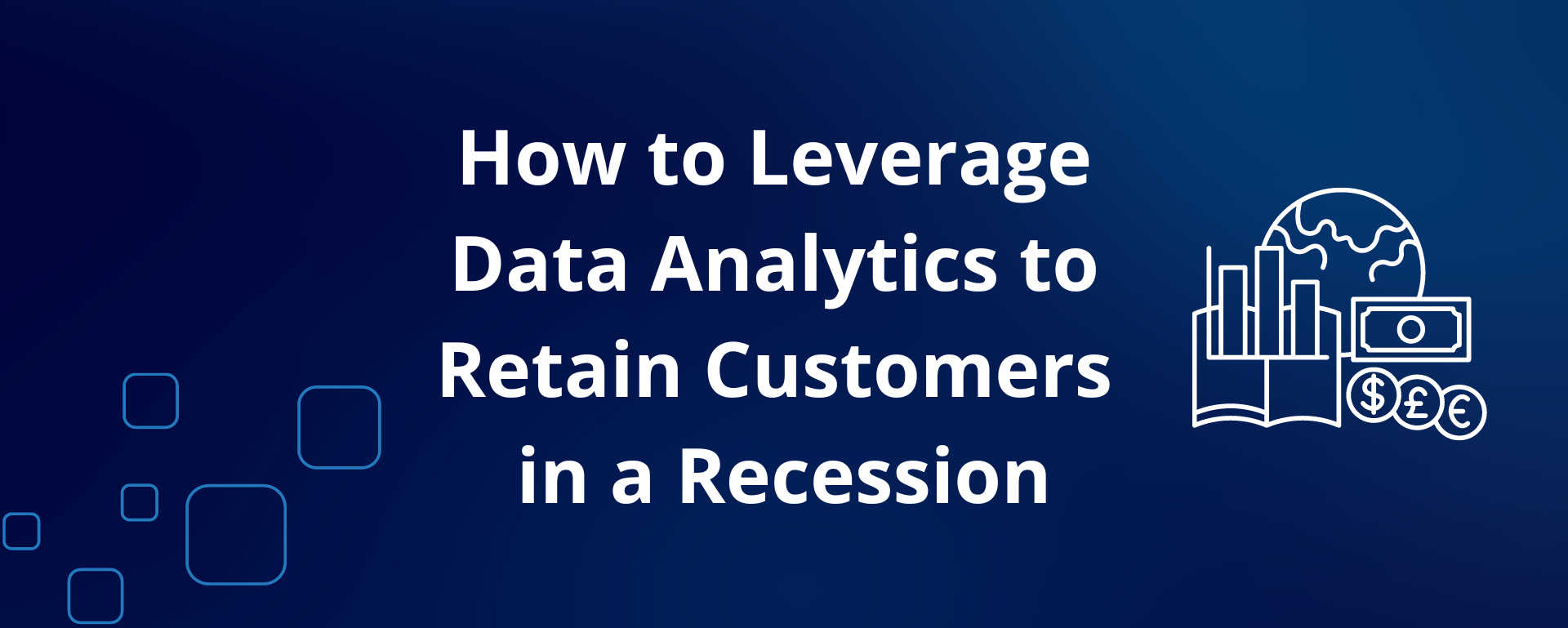
How to Leverage Data Analytics to Retain Customers in a Recession
Staying afloat during a recession requires a proactive approach. As consumers tighten their purse strings and competition for customers grows fierce, businesses must find ways to stand out from the competition and avoid falling into red ink. The key is to focus not just on attracting new clients but retaining the existing ones.

During a recession, businesses see a decline in sales but an increase in the cost of certain necessities, including utilities, inventory, and labor. This makes it challenging to invest in new projects and creates a need to remain frugal with current projects.
In such a scenario, customer retention is the key to long-term profitability. To ensure your business thrives after a recession, you must think strategically about the ROI you’re getting from your marketing budget.
The Role of Data Analytics
Data analytics help you uncover customer trends, track competitors, and monitor your marketing strategies. You can use this information to tailor your plan and products to what your customers want and what prospective customers are looking for. Data analytics helps you make changes that will ultimately benefit your company, as the changes are based on hard data.
This data can be obtained from web analytics, social media platforms, etc. Unstructured documents, including customer surveys and feedback forms, are also great data sources that can reveal meaningful insights. Here’s how to retain customers using data analytics:
1. Track Customer Behavior
Data analytics can be used to reevaluate your customer service experience. For example, you can use data to determine how long it takes your team to respond to customer service inquiries.
Additionally, you can use analytics to examine what percentage of customers rate your support team as helpful and what customers specifically are searching for in a “helpful” representative. Analyzing your data will help you improve customer service based on what your current customers already want.
2. Lay Out a Clear Marketing Strategy
Another good use of data analytics is determining which customers are most likely to purchase from you in the near future. Then you can focus your marketing efforts on these specific customers. Personalized campaigns are more likely to perform better than generic ones.
Additionally, you can use data to figure out the best times to make offers to your clients.
3. Be Selective with Advertising Strategies
Use data analytics to determine which advertising strategies are most likely to lead to customer retention. Two main avenues to consider are which types of ads lead to the most conversions and what times are most effective for running ads.
Choose to advertise in places where your customers are and avoid channels that won’t be beneficial to your business. Invest your time and money in advertising the way your customers are most drawn to in order to drive more customers to your business.
4. Budget Precisely
It’s important to be more cautious with your cash flow in a recession. You can use data analytics to create a comprehensive budget dashboard which helps track marketing expenses and forecast profit. It’s crucial to adjust your budget as your business changes.
For example, if you notice your profit margins are declining, you might want to rethink your marketing expenses to stay profitable, and vice versa. With data analytics, you’ll have accurate data at a moment’s notice, and you can make sure your budget always reflects the current state of your business.
Important Things to Keep in Mind
In a recession, you may be forced to cut costs, but your existing customers will still expect the same high-quality experience. In order to stand out from the competition, use targeted marketing strategies to convince your current customers that you still value their time and money.
A calculated marketing approach with data analytics at the forefront can propel your business forward amid the economic downturn.
Bottom Line
Retaining customers is crucial to surviving during a recession and thriving afterward. Data analytics improve your marketing strategies and help you reach out to customers more effectively. You can use data to track customer behavior, formulate a clear marketing strategy and be selective with your advertising strategies.
Additionally, it’s important to budget precisely and be watchful of your profit margins. Doing so will help you retain customers during a recession.
With the best data analytics, you can assess every touch point — large or small — and make decisions based on data rather than instinct. Your business decisions will never be as accurate and precise as they are when backed by data analytics.
Try the Latest Version of Astera Data Stack First-hand
At Astera, we offer a unified platform to help businesses automate and streamline data management. It enables faster insights to support informed, data-driven decision-making.
 Astera AI Agent Builder - First Look Coming Soon!
Astera AI Agent Builder - First Look Coming Soon!


